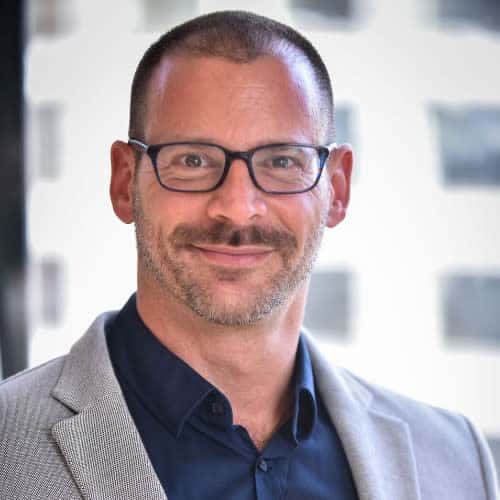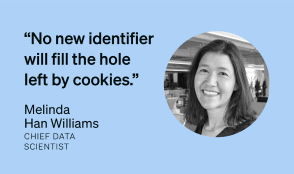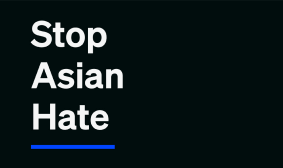Beyond the Rainbow – A Personal Story of Equality & Inclusion in the Workplace
2019 marks the 50th anniversary of the Stonewall Riots, one of the most significant events that led to the LGBTQ liberation movement (read more here).

In celebrating equality and inclusion for the LGBTQ community and committing to ensuring that our LGBTQ colleagues, clients and partners feel supported as members of the Dstillery family, Director of Analytics Gilad Barash shares his perspective on what inclusion in the workplace means to him.
Roughly 53% of LGBTQ people are closeted in the workplace. They don’t feel comfortable to come out, and when you’re closeted in the workplace, as I was 15 years ago, it takes up a lot of energy and distracts you from your work. Here are a few things that go through your mind:
- You have to think about changing pronouns or names of the significant others that you’re talking about.
- You have to think about avoiding conversations.
- You have to continually evaluate how much of yourself you are sharing..
The scariest part is that Monday morning water-cooler question, “Oh, what did you do this weekend?” The meme of the “calculating woman” is the best example of what goes through your head.

That’s what it feels like when you have to start answering questions about your personal life. You want to be included, you want to talk about yourself, you want to bond with your coworkers and you want to be a part of the company culture, but you can’t because you have that barrier. You end up feeling isolated in the workplace, you don’t really make friends, you feel depressed, you’re distracted from the work that you need to do.
Coming out is a decision that everybody has to make and we tend to think of coming out in two extremes. That on one hand if you’re in areas that they tend to be less accepting, there’s a more oppressing feeling, but then, those of us in places like New York and LA, there shouldn’t be a problem, because people are a lot more accepting. But that’s not necessarily the only part of the equation.
It’s a very, very personal journey and people even in New York, they live in gay neighborhoods in Chelsea and Hell’s Kitchen, don’t necessarily feel comfortable coming out at work. They’re dealing with baggage from their families who may live far away or they may live in the city, et cetera. And, not knowing your coworkers background, you don’t know if you can trust them to be accepting. So despite the fact that you could be living in a very nurturing and accepting environment, it’s a very, very personal choice that you may not be able to make those steps to get to the point where you come out.
I remember myself, the first time that I had to come out at work was very nerve-wracking. Like I said, about 15 years ago I was at a previous company in San Diego. There were a couple of other gay people that we had seen each out so we knew but it was a secret. First rule of fight club, you don’t talk about fight club, so we’d come into work and we would just kind of chat quietly about our real lives and weekends. Because I had a boyfriend at the time, I would change the pronouns in conversations and so I would only go so far in what I shared with my other coworkers.
It was very isolating but I managed to get away with it until the day that my boss asked me to add my emergency contact to a spreadsheet he was creating for the team. Being an immigrant, I didn’t have any family here, everybody knew that. The only person I had that I could possibly put on that sheet was my boyfriend. And I had to stand there and make the decision – “Am I ready to do this? Am I ready to name this person who nobody knows about, and I don’t know how people will feel about?” And I did it. He was very accepting. The team was very accepting and I haven’t looked back since. But it’s a dilemma that straight people never have to face.
Even when we come out – it’s a very conscious decision that we’re faced with every day. We don’t come out once. We come out continuously, every single day, in every new situation. Every new coworker that comes into the workplace that doesn’t know. Every new office that we go to work at. Every client, every new friend that we meet in a bar. Every day we have situations where we have to do the math. Should we come out, should we not come out? Does it make sense? Does it not? When they talk about their weekend, do we share information about ours honestly or go with the generic canned response?
“We don’t come out once. We come out continuously, every single day, in every new situation.”
For some people, that decision comes a lot easier. For me, today, after being out for 15 years, I don’t care. If you like it, you like it. If you don’t like it, you don’t like it. Your lack of acceptance is your problem, not mine. But some people still have that math that they do and it’s very difficult.
So in the workplace, despite it being inclusive, we also have to be careful about language and jokes that we make. Even though we can say the work’s “inclusive”, we have to make sure that people feel that as well.
I’m happy and blessed and pleased as a gay man to be working at a company that I know believes in those values and is inclusive. I hope that that continues and that we grow that inclusion and diversity in the company as we go forth.
For more information on the history of Pride Month and how you can support the LGBTQ Community, check out the resources below:
- The History of Stonewall Riots
- The Trevor Project
- True Colors United
- How To Be An LGBT Ally
- Out in Tech Organization


